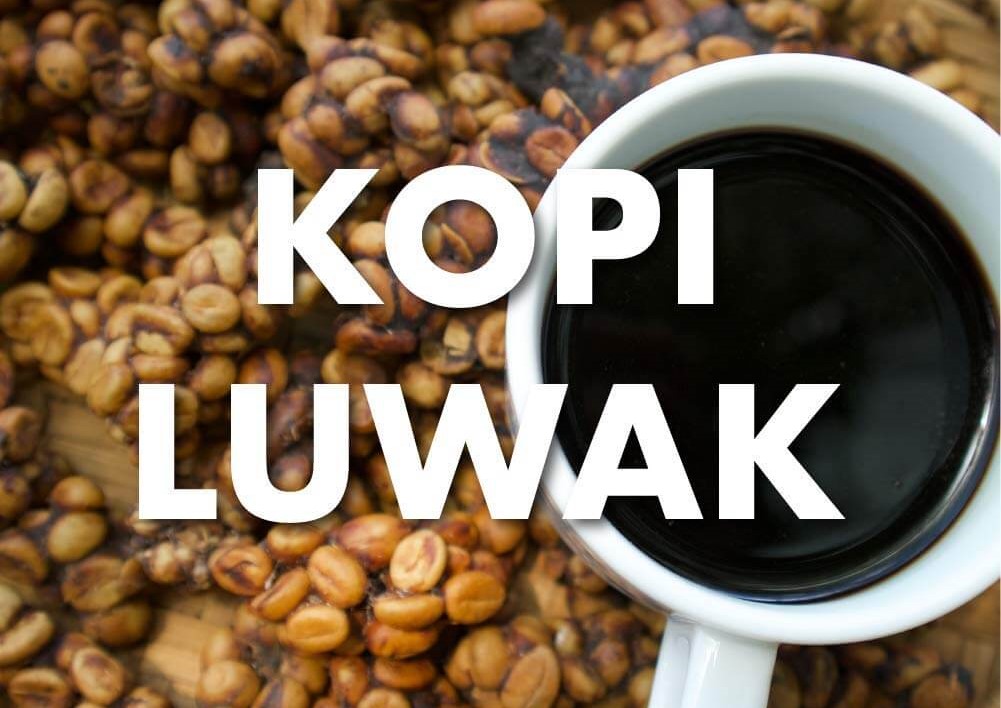Introduction:
In gastronomic indulgence, where rare and extraordinary experiences command a premium, few beverages hold as much allure as coffee. At the same time, a simple morning ritual for many, coffee has transcended its practical role to become a canvas for unparalleled luxury.
Pursuing the finest flavours, cultivated through meticulous processes and rare origins, has given rise to the “Most Expensive Coffee Brands in The World.” From the heights of distant mountains to the labour-intensive techniques that yield a precious brew, this article delves into the intriguing world of coffee that transcends the ordinary and ventures into the realm of luxury.
Join us as we explore the origins, cultivation methods, and sensory journeys that define these coveted beans, capturing the essence of craftsmanship and prestige that set them apart in the global coffee culture.
Most Expensive Coffee Brands in The World:
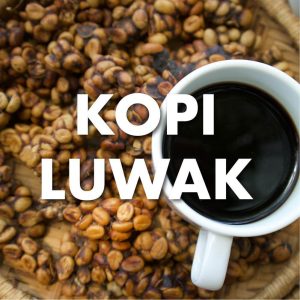
I will discuss the Kopi Luwak; without wasting time, let’s start.
- What is Kopi Luwak or Civet Coffee?
- The History of Kopi Luwak
- Where Does It Come From?
- How Much Does Kopi Luwak Cost?
- Taste of Kopi Luwak
- Benefits of Kopi Luwak
What is Kopi Luwak or Civet Coffee?
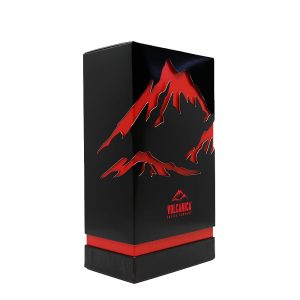
Kopi Luwak, also notorious as Civet Coffee, is a unique,Most Expensive Coffee Brands in The World and often controversial type of coffee produced using a specific process involving the digestive system of civet cats. Here’s an overview of what Kopi Luwak or Civet Coffee is:
- Production Process: Kopi Luwak is made from coffee beans eaten by civets, small mammals found in coffee-producing regions, particularly in parts of Asia and Africa. The civets consume the coffee cherries, and the beans are then naturally fermented as they pass through the civet’s digestive system.
- Collection: After being excreted by the civet, the beans are collected from the faeces. They are then cleaned, fermented, dried, roasted, and processed to create coffee sold as Kopi Luwak.
- Flavor Profile: Advocates of Kopi Luwak claim that the fermentation process in the civet’s digestive tract alters the beans’ flavour profile, resulting in a coffee that is milder, less acidic, and smoother compared to traditionally processed coffee. Notes of chocolate, caramel, and even fruitiness are often mentioned.
- Controversies and Ethical Concerns: While the unique production process has captured curiosity, Kopi Luwak has faced controversies. Many of the civets used in production are kept in captivity in poor conditions and are force-fed coffee cherries, raising ethical concerns about animal welfare. Additionally, there have been fraudulent practices in the market, with low-quality beans sold as genuine Kopi Luwak.
- Luxury and Rarity: Due to the labour-intensive process and limited supply (civets can only produce a limited amount of beans), Kopi Luwak has earned a reputation as one of the most expensive coffees in the world. Its rarity, novelty, and associations with luxury contribute to its premium pricing.
- Ethical and Sustainable Alternatives: In response to the controversies surrounding traditional Kopi Luwak production, some coffee producers and organizations are working to create ethical and sustainable alternatives where civets are not kept in captivity, and their well-being is prioritized.
In conclusion, Kopi Luwak or Civet Coffee, is Most Expensive Coffee Brands in The World and a unique coffee variety produced through the digestive process of civet cats. Its distinct production process, flavour profile, and premium pricing have captured the attention of coffee enthusiasts.
Still, ethical concerns and fraudulent practices have also sparked debates within the coffee industry and among consumers. When considering trying Kopi Luwak, it’s essential to research and choose sources that adhere to responsible and ethical production methods.
The History of Kopi Luwak:
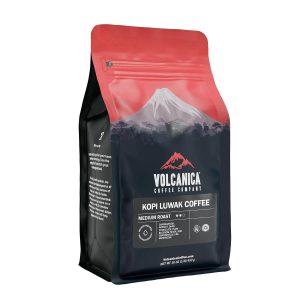
The history of Most Expensive Coffee Brands in The World Kopi Luwak, or Civet Coffee, is rooted in the coffee-producing regions of Indonesia and other parts of Southeast Asia. The term “Kopi Luwak” originates from Indonesian, where “kopi” means coffee and “luwak” refers to the civet cat that plays a central role in the coffee production process. Here is an overview of the history of Kopi Luwak:
Early Origins and Discovery: The origins of Kopi Luwak can be traced back to early coffee cultivation in Indonesia, which was under Dutch colonial rule. It is believed that local farmers and plantation workers noticed that civets were eating coffee cherries and excreting the coffee beans. Curiosity led them to collect these beans, clean and process them, and brew the resulting coffee. They found that fermentation in the civet’s digestive tract led to a unique and milder flavour profile.
Traditional Practices: Kopi Luwak initially emerged as a local curiosity consumed by farmers and locals in coffee-producing regions. The coffee’s distinct taste gained some recognition within the local communities.
Commercialization and Modern Trends: The commercialization of Kopi Luwak began in the late 20th century as word of this unique coffee spread beyond Indonesia. The rarity and novelty of the coffee’s production process captured the interest of coffee enthusiasts, leading to increased demand in international markets.
Ethical and Environmental Concerns: As demand for Kopi Luwak grew, concerns arose about the ethical treatment of civets and the environmental impact of capturing them for coffee production. Some producers resorted to keeping civets in captivity and force-feeding their coffee cherries, raising ethical questions about animal welfare.
Debates and Industry Challenges: The Kopi Luwak industry faced debates about authenticity, sustainability, and ethical practices. The premium pricing of the coffee made it susceptible to fraud, with some producers selling low-quality or non-authentic beans as genuine Kopi Luwak.
Efforts toward Ethical Production: In response to concerns, some coffee producers and organizations began advocating for ethical and sustainable production practices. These efforts aimed to ensure the well-being of civets and maintain the environmental balance in coffee-producing regions.
In conclusion, Kopi Luwak’s history is intertwined with Indonesia’s coffee traditions and other regions where civet cats are found. From its early discovery as a local curiosity to its commercialization and subsequent debates about ethics and authenticity, Kopi Luwak remains a coffee variety that fascinates coffee enthusiasts worldwide. When considering trying Kopi Luwak, choosing reputable sources prioritizing responsible and ethical practices in its production is essential.
Where Does It Come From?
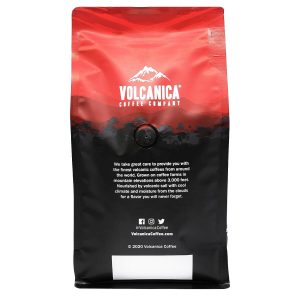
Most Expensive Coffee Brands in The World Kopi Luwak, also known as Civet Coffee, originates from various coffee-producing regions in Asia and Africa, where the civet cat is found. The term “Kopi Luwak” is Indonesian, with “kopi” meaning coffee and “luwak” referring to the civet. Here are some of the critical regions where Kopi Luwak is produced:
- Indonesia: Indonesia is one of the most well-known and traditional producers of Kopi Luwak. The islands of Sumatra, Java, Bali, and Sulawesi are mainly known for producing this unique coffee. Kopi Luwak is often associated with cultural traditions and is part of the local coffee landscape in Indonesia.
- Vietnam: Vietnam is another country where Kopi Luwak is produced. The civet coffee industry has gained traction in certain parts of Vietnam, particularly in the Central Highlands region.
- Philippines: The Philippines also has a history of producing Kopi Luwak. Some coffee farms in the Philippines have ventured into civet coffee production to cater to the market’s demand for this speciality coffee.
- Ethiopia: While less common, there are reports of civet coffee production in Ethiopia, which is the birthplace of coffee. However, this production is generally on a smaller scale compared to other regions.
- Other Countries: Civet coffee production has also been attempted in other coffee-producing countries like India, Thailand, and Africa.
It’s important to note that the authenticity and ethical practices of Kopi Luwak production can vary widely. Civets are sometimes kept in captivity and force-fed coffee cherries, which raises ethical concerns about animal welfare. When considering trying Kopi Luwak, it’s recommended to research and choose sources that prioritize ethical and sustainable production methods.
How Much Does Kopi Luwak Cost?

Most Expensive Coffee Brands in The World Kopi Luwak’s cost can vary widely depending on factors such as the quality of the beans, the source, the region, and the retailer. Kopi Luwak is often considered one of the most expensive coffees in the world due to its unique production process and limited availability. Here are some approximate price ranges:
- Local Coffee Shops in Coffee-Producing Regions: If you’re in a region where Kopi Luwak is produced, such as Indonesia, it is offered for around $10 to $30 per cup in local coffee shops or cafes.
- International Cafés and Specialty Shops: The price can be even higher in Western countries or international cities, where Kopi Luwak is often considered a luxury or novelty item. A cup of Kopi Luwak coffee in such establishments could range from $30 to $100.
- Retail Price for Beans: If you’re interested in purchasing Kopi Luwak coffee beans to brew at home, the price per pound or kilogram can be pretty steep. High-quality, authentic Kopi Luwak beans can be priced anywhere from $100 to $600 per pound or more, depending on factors like rarity, sourcing, and quality.
It’s worth mentioning that due to the unique nature of Kopi Luwak and the potential for fraudulent practices in the market, it’s essential to be cautious and ensure you’re buying from reputable sources. Authenticity and ethical production practices should be considered when making a purchase.
Taste of Kopi Luwak:
The taste of Most Expensive Coffee Brands in The World Kopi Luwak, like any coffee, can be influenced by factors such as the coffee bean variety, growing conditions, processing methods, and roasting techniques. However, some common characteristics and flavour profiles often associated with Kopi Luwak include:
- Mildness: One of the most commonly mentioned traits of Kopi Luwak is its mild and smooth flavour. The fermentation during the civet’s digestive process is believed to contribute to this mildness by breaking down some of the coffee’s acidity.
- Low Acidity: Kopi Luwak tends to have lower acidity than other coffees. This can make it more appealing to individuals who prefer a less tangy or sharp taste in their coffee.
- Complexity: Some descriptions of Kopi Luwak suggest that it can exhibit a complex flavour profile with multiple layers of taste. You might encounter notes of chocolate, caramel, nuts, and sometimes subtle hints of fruitiness.
- Clean Finish: Kopi Luwak is often said to have a clean and lingering finish, which means that the aftertaste is pleasant and doesn’t leave any undesirable bitterness.
- Smoothness: The combination of mildness, low acidity, and clean finish contributes to a smooth overall taste. This can particularly appeal to individuals who enjoy coffee without intense or overpowering flavours.
It’s important to note that the quality of the beans can influence the taste of Kopi Luwak, the processing methods used after collection, and how it is roasted and brewed. Additionally, individual preferences play a significant role in how someone perceives the taste of any coffee, including Kopi Luwak. If you’re curious about the taste, consider trying it from a reputable source that can provide transparency about the beans’ origin and processing methods.
Benefits of Kopi Luwak
While Most Expensive Coffee Brands in The World Kopi Luwak, also known as Civet Coffee, is often enjoyed for its unique production process and flavour profile, it’s important to note that scientific research on its specific health benefits is limited. Most potential benefits associated with Kopi Luwak are similar to those of other types of coffee. Here are some general benefits that coffee, including Kopi Luwak, may offer:
- Antioxidant Properties: Coffee is rich in antioxidants, such as chlorogenic acid, which have potential health benefits by helping to deactivate harmful free extremists in the body.
- Alertness and Cognitive Function: The caffeine in coffee can help improve alertness, concentration, and cognitive function, potentially enhancing productivity and mental performance.
- Reduced Risk of Certain Diseases: Some studies advise that reasonable coffee consumption may be associated with a lower risk of confident diseases, such as type 2 diabetes, Parkinson’s disease, and certain types of cancer.
- Mood Enhancement: Coffee consumption is linked to improvements in mood and a reduced risk of depression. The caffeine content may contribute to these effects.
- Physical Performance: Caffeine enhances physical performance by increasing adrenaline levels, which can improve physical endurance and stamina.
- Digestive Benefits: Some individuals find that coffee, including Kopi Luwak, can have a mild laxative effect, aiding digestion.
- Potential Protective Effects on Liver Health: Some study suggests that coffee ingesting may be associated with a reduced risk of liver diseases, including liver cirrhosis and liver cancer.
- Social and Pleasurable Experience: Enjoying a cup of coffee, including the novelty of Kopi Luwak, can be a pleasurable and social experience that adds joy to daily routines.
Consuming Kopi Luwak and coffee in moderation is essential, as excessive caffeine intake can lead to opposing effects such as insomnia, increased heart rate, and digestive issues. Additionally, individual responses to coffee can vary, so listening to your body and adjusting consumption is recommended.
While some potential benefits mentioned above are general to coffee consumption, the unique aspects of Kopi Luwak production may add an element of novelty and intrigue to the experience. However, due to the ethical and environmental concerns associated with some Kopi Luwak production methods, choosing reputable sources and prioritizing responsible and ethical practices is advisable.

Conclusion:
In conclusion, the world of coffee boasts an array of unique and luxurious offerings, with the title “Most Expensive Coffee Brands in The World” often attributed to the coveted kopi luwak. Renowned for its intriguing production process, kopi luwak is derived from coffee beans that have passed through the digestive tract of civets, creating a distinctive and less acidic flavour profile. This coffee’s exclusivity is rooted in its labour-intensive collection, limited availability due to the civet population, and its association with luxury and novelty.
However, the allure of the most expensive coffee comes with a caveat. Ethical concerns have arisen over the treatment of civets, as some producers engage in captivity and force-feeding practices to meet demand. This has spurred debates within the coffee industry about sustainability, animal welfare, and transparency in kopi luwak production.
Ultimately, the allure of the most expensive coffee extends beyond its flavour. It encapsulates a blend of curiosity, adventure, and the desire for a unique and premium experience. As coffee enthusiasts and consumers, it is crucial to be mindful of ethical considerations and seek out reputable sources that adhere to responsible production methods.
Whether one decides to indulge in the world’s most expensive coffee or not, the story behind it offers a fascinating glimpse into the intersection of culture, luxury, and environmental consciousness in coffee consumption.
FAQs:
Why kopi luwak coffee is so expensive?
Kopi luwak coffee is considered one of the most expensive coffees in the world due to its unique production process and limited availability. Here’s why it’s so costly:
- Unusual Production Process: Kopi luwak is made from coffee beans eaten and then excreted by the civet, a small mammal found in coffee-producing regions. The beans are collected from the faeces, cleaned, and processed into coffee. The fermentation in the civet’s digestive tract is believed to alter the flavour of the beans, producing a milder, less acidic taste.
- Labour-Intensive Collection: Collecting the beans from civet droppings is a labour-intensive process. Locals or farmers must search for civet droppings, meticulously pick out the coffee beans, clean and sanitize them, and then process them for roasting.
- Limited Supply: The production of kopi luwak is limited by the natural population of civets. Furthermore, the fact that not all civets produce high-quality beans adds to the rarity. This scarcity of supply contributes to the high price.
- Processing Costs: After collecting the beans, they must be thoroughly cleaned and processed to ensure they are safe for consumption. This additional processing adds to the overall cost.
- Marketing and Rarity: The rarity and unique production process of kopi luwak have created a sense of exclusivity and luxury around the coffee. This marketing angle plays a significant role in driving up its price.
- Demand and Perception: The novelty of consuming coffee that has passed through a civet’s digestive system has generated interest among particular coffee enthusiasts, leading to higher demand. Some people are willing to pay a premium for the experience and the story behind the coffee.
- Perceived Quality: The perception that kopi luwak is a premium product with distinct flavours and aromas further justifies its high price tag among consumers who believe in its unique taste.
Ultimately, the high price of kopi luwak combines its rarity, labour-intensive production process, marketing, and demand from consumers looking for a unique and luxurious coffee experience.
How much is a cup of kopi luwak coffee?
The price of kopi luwak cup coffee can vary extensively depending on some factors, including the location, the quality of the coffee, the establishment serving it, and the demand for this speciality coffee. On average, you can expect to pay a significant premium compared to regular coffee. Here are some approximate price ranges:
- Local Coffee Shops in Indonesia: In the regions where kopi luwak is produced, such as Indonesia (Bali, Sumatra, Java), you might find it offered for around $10 to $30 per cup in local coffee shops. Prices can vary based on the authenticity of the coffee, the quality of the beans, and the overall ambience of the café.
- International Cafés and Specialty Shops: The price can be even higher in Western countries and international cities, where kopi luwak is often considered a luxury or novelty item. A cup of kopi luwak coffee in such establishments could range from $30 to $100.
- Retail Price for Beans: If you’re interested in purchasing kopi luwak coffee beans to brew at home, the price per pound or kilogram can be pretty steep. High-quality, authentic kopi luwak beans can be priced from $100 to $600 per pound, depending on the rarity and sourcing.
It’s important to note that the authenticity of kopi luwak can be a concern due to the potential for fraud and unethical practices in the industry. Do thorough research and purchase from reputable sources to ensure you’re getting genuine kopi luwak and support ethical coffee production practices.
Remember that prices can fluctuate based on market trends, supply and demand, and the reputation of the coffee producer. If you’re considering trying kopi luwak coffee, be prepared for a premium price due to its unique production process and limited availability.
Where is the most decadent coffee in the world?
Indonesia has the world’s most decadent coffee, Kopi Luwak. It is also called Luwak or Asian palm civet. It is so expansive because of its process of making.
Does Kopi Luwak taste good?
The taste of Kopi Luwak coffee can be pretty subjective and varies from person to person. Some people find it a unique and enjoyable coffee experience, while others may not find it significantly different from other high-quality coffees. Several factors influence the taste of Kopi Luwak:
- Flavour Profile: The fermentation in the civet’s digestive tract is believed to contribute to a milder and less acidic taste. Some descriptions of Kopi Luwak’s flavour profile include chocolate, caramel, earthiness, and sometimes a hint of fruitiness.
- Quality and Processing: Kopi Luwak’s taste can vary based on the quality of the beans, how they were collected, and how they were processed after being collected from civet droppings. Carefully cleaned and roasted high-quality beans can offer a more distinct and enjoyable flavour.
- Brewing Method: The brewing method can also impact the taste of the coffee. The resulting flavour profile can vary whether you brew it as espresso, French press, pour-over, or another method.
- Personal Preferences: Like any coffee, individual preferences play a significant role in determining whether someone finds Kopi Luwak coffee to be good or not. Some people appreciate the novelty and its story, while others focus on the taste.
It’s important to note that due to the rarity and cost of authentic Kopi Luwak, there can be fraud or mislabeling in the market. To truly experience the potential taste of Kopi Luwak, it’s recommended to purchase from reputable sources that can provide transparency about the beans’ origin and processing methods.
Ultimately, whether you find Most Expensive Coffee Brands in The World Kopi Luwak coffee to taste good is a matter of personal taste. If you’re curious, it could be worth trying it from a reputable source to form your opinion. Remember that the coffee’s novelty and uniqueness can also play a role in how you perceive its taste.
Who drinks Kopi Luwak?
Most Expensive Coffee Brands in The World Kopi Luwak is often considered a luxury or speciality coffee a relatively niche market consumes. Here are some groups of people who might be interested in drinking Kopi Luwak:
- Coffee Enthusiasts: Those passionate about coffee and exploring unique and rare coffee varieties might want to try Kopi Luwak for its distinct production process and potential flavour profile.
- Tourists and Travelers: Travelers visiting coffee-producing regions like Indonesia, where Kopi Luwak is traditionally produced, might be curious to experience this speciality coffee as part of their cultural exploration.
- Gourmet and Culinary Connoisseurs: Individuals who appreciate gourmet and high-end culinary experiences might seek out Kopi Luwak to indulge in something exclusive and unique.
- Gifts and Souvenirs: Kopi Luwak is often purchased as a luxury gift or souvenir for friends, family, or colleagues who enjoy coffee or are interested in trying something out of the ordinary.
- Food and Beverage Industry Professionals: Chefs, restaurateurs, and those in the hospitality industry might offer Kopi Luwak as a premium coffee option in upscale dining establishments or speciality cafes.
- Curiosity Seekers: Some people are drawn to the novelty and story of Kopi Luwak—coffee that passes through a civet’s digestive system—and might try it out of curiosity.
- Social and Status Symbol: For some, drinking Kopi Luwak could be a way to showcase social status or a taste for exclusive and rare products.
Ultimately, Most Expensive Coffee Brands in The World Kopi Luwak is not widely consumed due to its high cost, rarity, and the specific circumstances required for its production.
Which country is No 1 in coffee?
Brazil is generally considered the world’s largest coffee producer and exporter, making it one of the most significant players in the global coffee industry. Brazil’s diverse climate and geography allow for cultivating a wide range of coffee varieties, and the country produces a substantial portion of the world’s coffee supply.
In addition to Brazil, countries like Vietnam, Colombia, Ethiopia, and Honduras are prominent coffee producers, each contributing significant quantities of coffee to the global market.
Please note that coffee production can vary yearly due to factors such as weather conditions, market demand, and economic considerations. For the most up-to-date information on coffee production by country, it’s recommended to refer to current information from reputable sources such as the International Coffee Organization (ICO) or industry associations.
Who is the number 1 seller of coffee?
Starbucks is one of the world’s largest and most well-known coffee shop chains and is often considered one of the top sellers of coffee. Starbucks operates thousands of coffee shops globally and offers various coffee-based beverages and other food and drink items.
However, regarding the overall coffee market, it’s important to note that significant coffee companies and brands are involved in coffee production, distribution, and retail that sell coffee beans and products in various forms, including packaged coffee for home consumption.
Coffee companies like Nestlé (which owns the Nescafé and Nespresso brands), JDE Peet’s (owner of brands like Peet’s Coffee and Jacobs Douwe Egberts), and The J.M. Smucker Company (owner of brands like Folgers and Dunkin’ Donuts Coffee) are also significant players in the coffee industry.
It’s worth mentioning that the coffee market is complex and multifaceted, involving both retail coffee shops and packaged coffee products sold in grocery stores and online. The “number 1 seller” can vary depending on the specific criteria used: revenue, market share, or other metrics. You might want to refer to recent reports on coffee industry sales and market share for the most current and accurate information.
Who is the world’s top 1 coffee?
Brazil is the world’s primary coffee producer and exporter, consistently ranking as one of the top coffee-producing countries in volume.
However, suppose you’re asking about the highest-quality coffee. In that case, it’s important to note that coffee quality is subjective and can vary based on personal preferences, processing methods, growing conditions, and other factors. Different coffee-growing regions are known for producing unique flavour profiles and characteristics.
For example, Ethiopian coffees are often celebrated for their distinct and diverse flavour profiles, including bright acidity and fruity notes. Jamaica Blue Elevation Coffee is renowned for its mild and balanced flavour. Colombian coffee is known for its mild yet rich taste. Speciality coffee regions like Yirgacheffe in Ethiopia, Gesha in Panama, and Sidamo in Ethiopia are often associated with producing some of the world’s most highly regarded and sought-after coffee beans.
Ultimately, the “Most Expensive Coffee Brands in The World” can vary based on the specific context you’re referring to, production volume, quality, popularity, or other criteria.
What is the taste of Kopi Luwak?
The taste of Kopi Luwak, like any coffee, can vary built on issues such as the coffee bean variety, growing conditions, processing methods, and roasting techniques. However, some common characteristics and flavour profiles often associated with Kopi Luwak include:
- Mildness: One of the most commonly mentioned traits of Kopi Luwak is its mild and smooth flavour. The fermentation during the civet’s digestive process is believed to contribute to this mildness by breaking down some of the coffee’s acidity.
- Low Acidity: Kopi Luwak tends to have lower acidity than other coffees. This can make it more appealing to individuals who prefer a less tangy or sharp taste in their coffee.
- Complexity: Some descriptions of Kopi Luwak suggest that it can exhibit a complex flavour profile with multiple layers of taste. You might encounter notes of chocolate, caramel, nuts, and sometimes subtle hints of fruitiness.
- Clean Finish: Kopi Luwak is often said to have a clean and lingering finish, which means that the aftertaste is pleasant and doesn’t leave any undesirable bitterness.
- Smoothness: The combination of mildness, low acidity, and clean finish contributes to a smooth overall taste. This can particularly appeal to individuals who enjoy coffee without intense or overpowering flavours.
It’s important to note that the quality of the beans can influence the taste of Most Expensive Coffee Brands in The World Kopi Luwak, the processing methods used after collection, and how it is roasted and brewed. Additionally, individual preferences play a significant role in how someone perceives the taste of any coffee, including Kopi Luwak. If you’re curious about the taste, consider trying it from a reputable source that can provide transparency about the beans’ origin and processing methods.
What is luwak coffee in English?
Most Expensive Coffee Brands in The World “Luwak coffee” is the English translation of the Indonesian term “Kopi Luwak.” In Indonesian, “kopi” means “coffee,” and “luwak” refers to the civet, a small mammal that plays a unique role in the production process of this type of coffee. Luwak coffee is made from coffee beans eaten and excreted by civets. The beans are then collected, cleaned, and processed to create a distinct and often sought-after type of coffee.
Why do people drink luwak coffee?
People drink luwak coffee, also known as kopi luwak, for various reasons, including curiosity, novelty, perceived uniqueness, and interest in experiencing a different coffee flavour profile. Here are some of the common reasons why people choose to try Luwak coffee:
- Curiosity and Novelty: The unique production process of luwak coffee, where civets eat coffee cherries and then collect them from their droppings, creates a curiosity and novelty factor that attracts some people to try it. Consuming coffee that has passed through an animal’s digestive system can be intriguing.
- Unique Flavor Profile: Some coffee enthusiasts believe that fermentation during the civet’s digestion can lead to a unique flavour profile in the coffee beans. This distinct flavour profile, often described as mild, smooth, and less acidic, intrigues those looking for different taste experiences.
- Exclusivity and Luxury: Luwak coffee is often marketed as a luxury and exclusive product due to its limited availability and unique production process. Some individuals are drawn to the idea of consuming something rare and unique.
- Cultural and Culinary Exploration: People interested in exploring different cultures and culinary traditions may try luwak coffee as part of their travel experiences in coffee-producing regions like Indonesia.
- Gifts and Souvenirs: Luwak coffee can be purchased as a souvenir or gift for friends, family members, or colleagues who appreciate coffee or enjoy trying unique products.
- Social and Status Symbol: In some cases, consuming luwak coffee can serve as a social or status symbol, signalling that the individual has access to unique and exclusive products.
It’s important to note that while Most Expensive Coffee Brands in The World luwak coffee has gained popularity for these reasons, ethical and environmental concerns are associated with its production. Some Luwak coffee is produced through unethical practices, including keeping civets in captivity and force-feeding coffee cherries. Before trying luwak coffee, individuals should research and choose reputable sources, prioritizing ethical and sustainable production methods.

